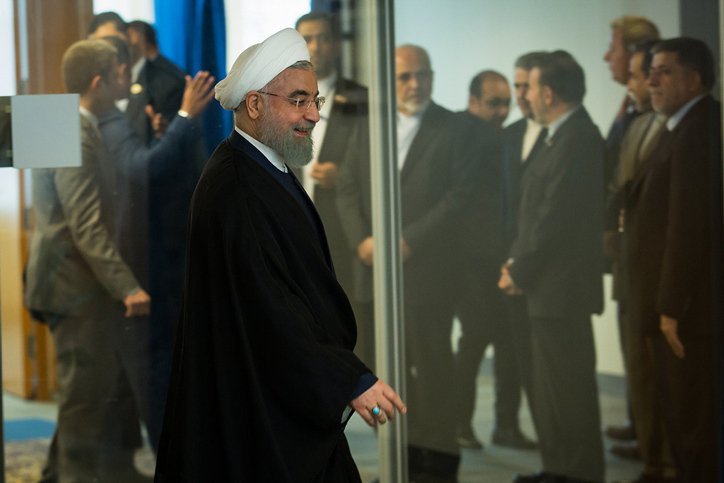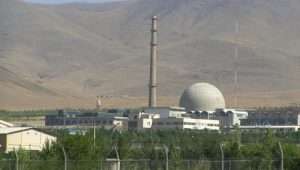A major and unusual cyberattack took place recently in Iran during which many gas stations across the country were shut down. Iran’s official IRNA news agency quoted the head of the Iranian Defense Forces, Sardar Jalali, who described the cyberattack as being the work of Israel and the United States. Senior Iranian officials have not ruled out Iranian insiders who assisted in the unprecedented attack.
According to reports from Iran, more than 4,000 gas stations were out of operation. Long lines were observed waiting for service at the stations, but most were only providing minimal services. According to other reports we received from inside Iran, messages were posted on several hacked gas stations and on digital billboards across the country directly addressing Iran’s Supreme Leader, Ayatollah Ali Khamenei, demanding to know: “Khamenei, where’s the fuel?”
همزمان با حمله سایبری به جایگاههای عرضه سوخت، ویدیوهای منتتشر شده حاکی از هک بیلبورد بزرگراهها در اصفهان است و پیام «خامنهای! بنزین ما کو؟» روی آن نمایش داده شده است pic.twitter.com/Pu2mox0RYK
— ايران اينترنشنال (@IranIntl) October 26, 2021
Electronic billboards in Iran were hacked to demand of Supreme Leader Ayatollah Khamenei, “where’s the fuel?”
Due to the situation, fuel on the black market increased in price by 300 percent. Huge traffic jams and long lines were visible near gas stations, such as the long line of cars seen here outside a station on the outskirts of Tehran:
The attack caused shock and panic among the leaders of Iran, demonstrating for them Israel’s strength and ability to disrupt the entire nation. But we must not forget that the Iranians are also very adept and active in cyber warfare and have more than once caused damage to Israel, though mostly to companies in the private sector.
Iran has a long history of hacking Israeli websites. About a year ago, in December 2020, hackers managed to break into the computer network of the Israeli insurance company Shirbit and steal large amounts of private information from the company’s servers. They were able to get their hands on employee pay slips, claims filed by clients (including appraisals and medical records) and also a large number of customer IDs.
Also recently, nine Israeli hospitals were attacked, including Sheba Medical Center just outside Tel Aviv, Israel’s largest hospital. Israeli cyber defenses eventually were able to contain the attack. Iranian hackers also tried to break into Wolfson Hospital and the Barzilai Medical Center, where they tried to disable the treatment systems. Fortunately, they were unsuccessful.
In response to Israel’s recent attack on Iran’s gas stations, the Iranians carried out two cyberattacks on Israeli websites. We reported previously how that attack had, in addition to other things, “outed” a number of Israeli homosexuals.
The second attack was apparently carried out against an Israeli military website. The Iranians published a list of soldiers’ names, including personal details about them and their service. It was carried out by a group of hackers who call themselves “Mata Moshe,” (literally – the death of Moses).
The hackers posted files online and on Telegram containing data from hundreds of soldiers and pre-military preparatory students stolen from Defense Ministry computers. In addition, files were published detailing the forces of a combat brigade, including the planning schedules, names of the soldiers, their roles and their training. The files also contain a “brigade data list” that includes the names, email addresses, phone numbers and residential addresses of hundreds of soldiers.
Israel’s war with Iran crosses national and international boundaries in cyberspace and on the ground. Israel is attacking Iranian positions in Syria while preparing for what looks like an imminent military intervention to prevent a nuclear Iran. Now in cyberspace, both sides have taken off the gloves and are going at it head to head with each side trying to paralyze the other. There are no winners or losers here, and a lot of these tussles are just looking to win over public opinion.
Israel, of course, has a great advantage over the Iranians in every arena. Israel’s military and technological advantages are well known, but there is also an advantage not yet fully exploited. There are hundreds of thousands of oppressed Iranians who would be happy to cooperate in the battle to bring down their repressive Islamic regime. In Israel, on the other hand, it would be difficult to find anyone in the Jewish population who would be willing to cooperate in acts against the state.















